LaTeX templates and examples — Direct Submission Link
Recent
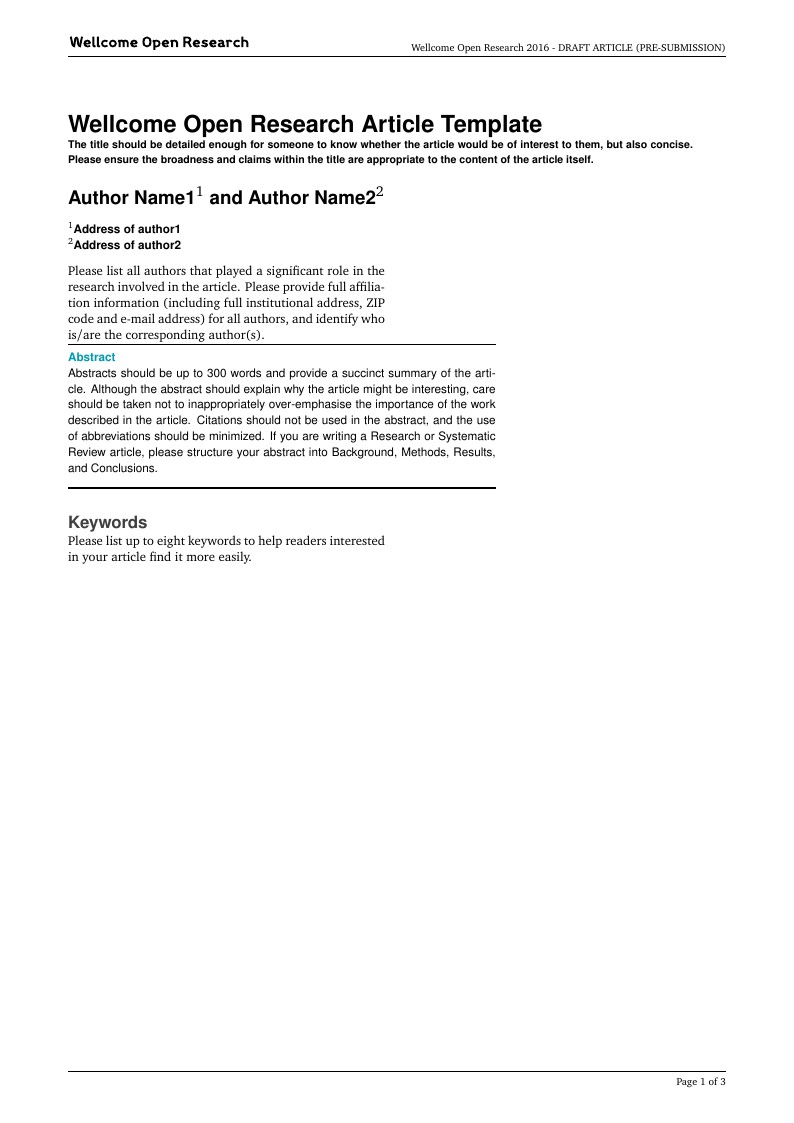
This template has been created for authors submitting articles to Wellcome Open Research. It is designed for easy editing online with Overleaf, and users can submit their paper directly to Wellcome Open Research from the Overleaf editor. Submission to Wellcome Open Research is limited to Wellcome-funded researchers. Simply click above to start writing online in your browser. For instructions about the different article types accepted, please see Wellcome Open Research’s article guidelines, and if you're new to Overleaf check out our tutorial for some help getting started.
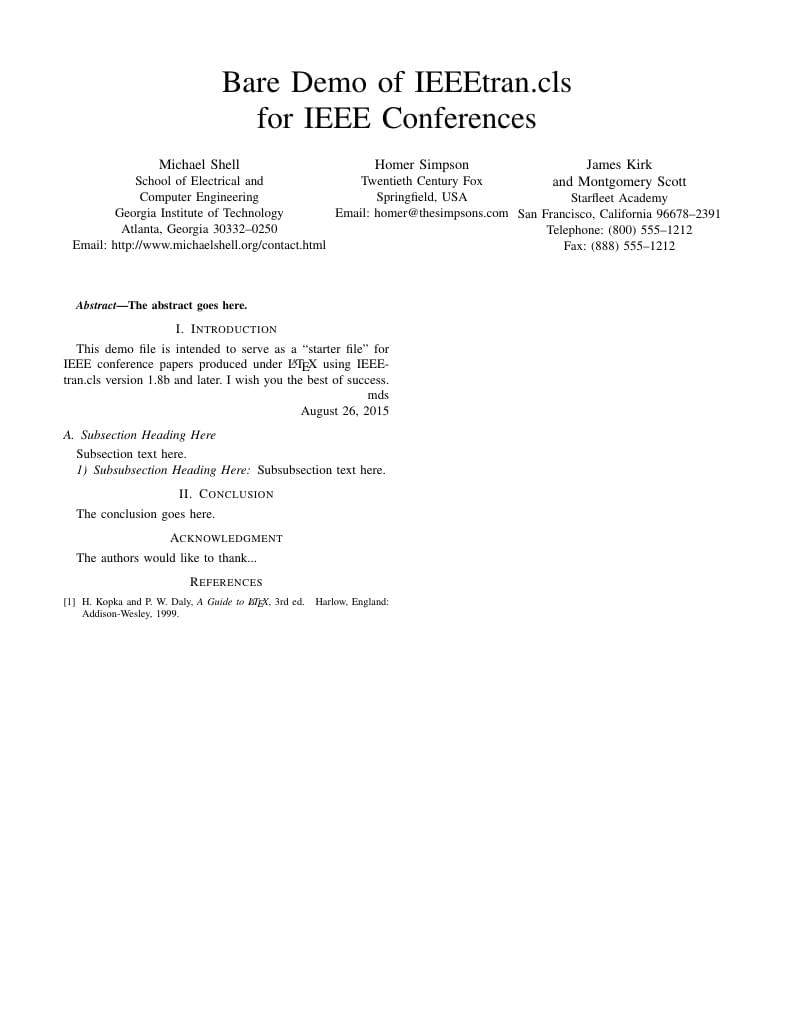
This demo file is intended to serve as a ``starter file'' for IEEE conference papers produced under LaTeX using IEEEtran.cls version 1.8b and later. This is one of a number of templates using the IEEE style that are available on Overleaf to help you get started - use the tags below to find more. IEEEtran.cls version: 1.8b
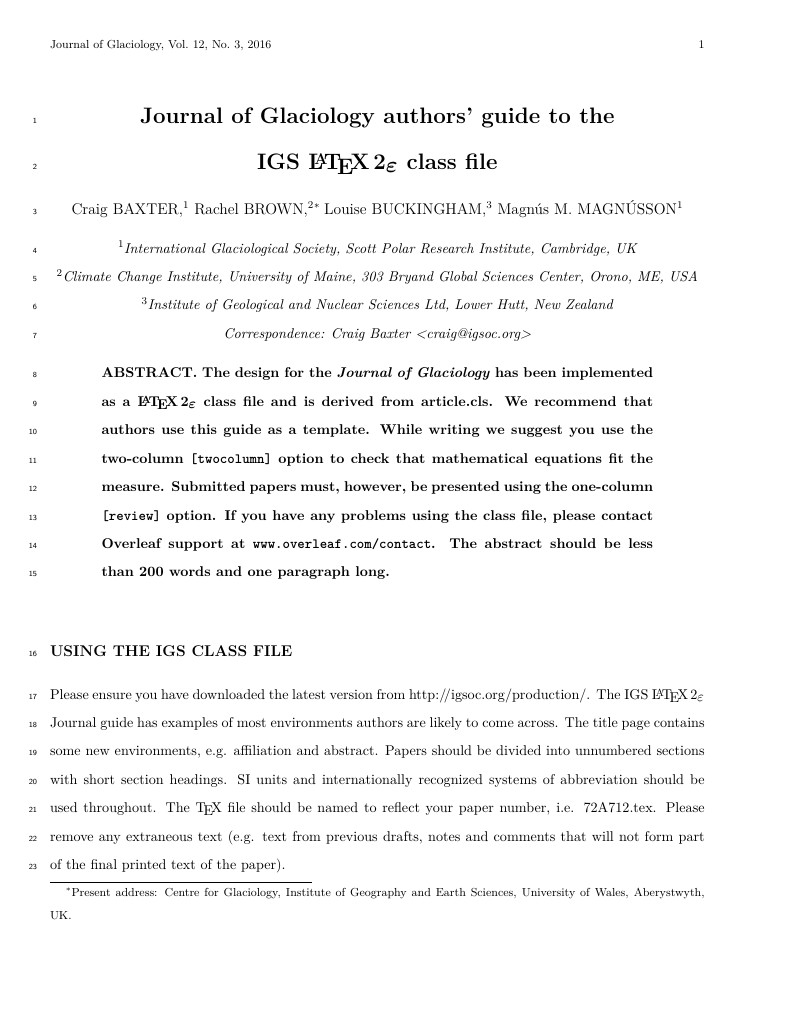
This is the template for LaTeX submissions to Publications of the Journal of Glaciology (JOG). You can use it to write and collaborate online in LaTeX. Once your article is complete, you can submit directly to JOG using the ‘Submit to journal’ option in the Overleaf editor. For more information on how to write in LaTeX using Overleaf, see this video tutorial, or contact the the journal for more information on submissions.
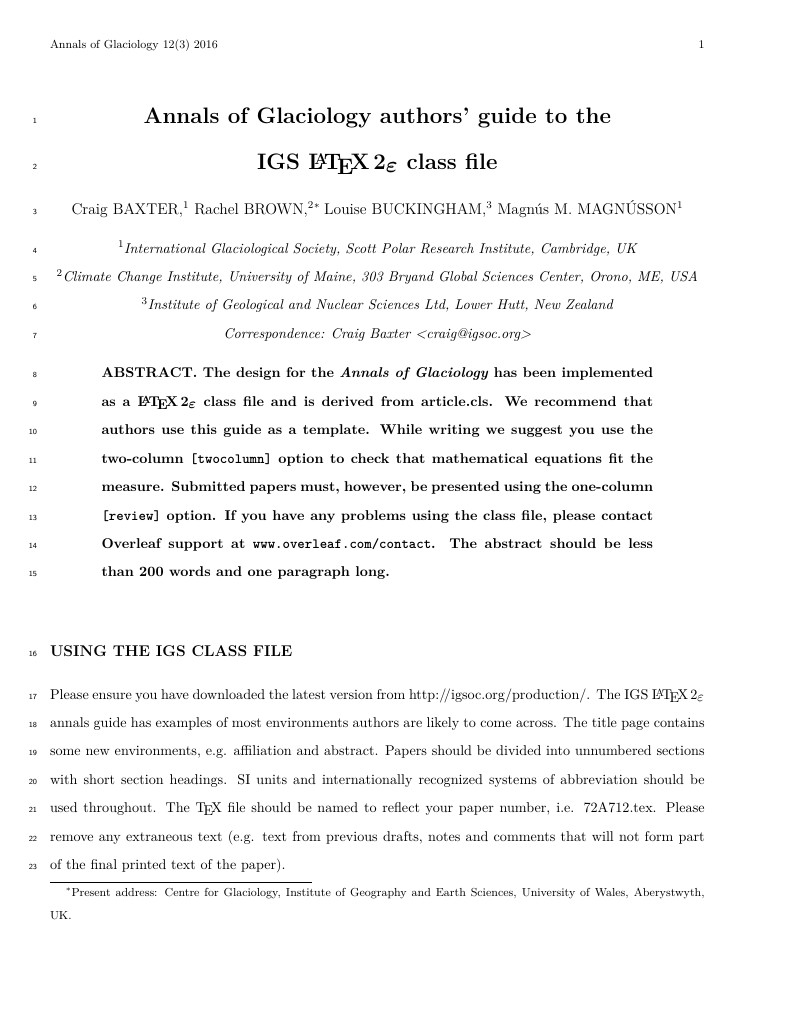
This is the template for LaTeX submissions to Annals of Glaciology (AOG). You can use it to write and collaborate online in LaTeX. Once your article is complete, you can submit directly to AOG using the ‘Submit to journal’ option in the Overleaf editor. For more information on how to write in LaTeX using Overleaf, see this video tutorial, or contact the the journal for more information on submissions.
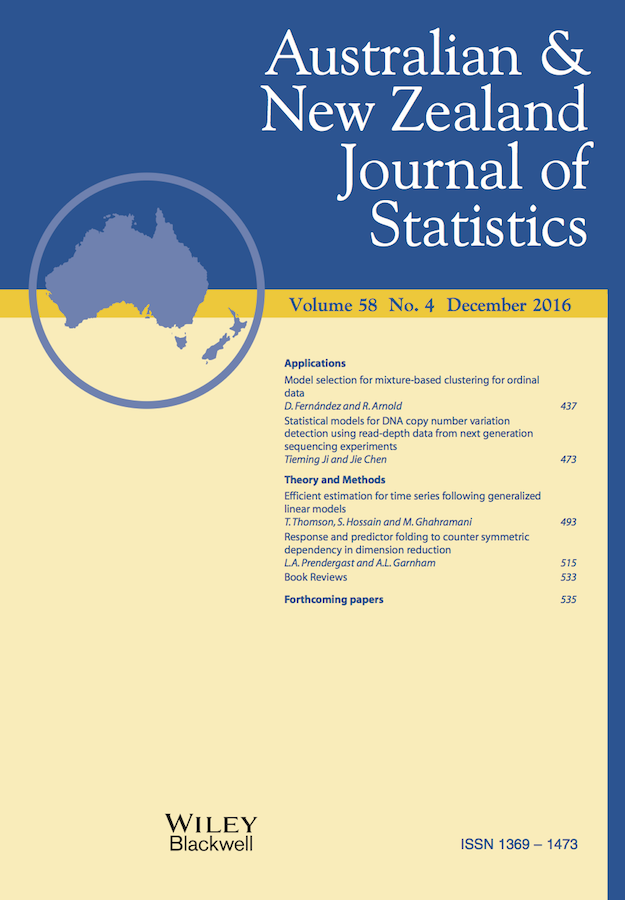
This is the official template for preparing submissions to Australian & New Zealand Journal of Statistics, which uses the anzsauth.cls document class and anzst.bst bibliography files. Use of this document class and bibliography style will make it much easier for you to prepare your paper in a manner conforming to the journal's requirements. Please refer to the journal’s author guidelines in order to confirm your manuscript adheres to the journal’s requirements for submissions. Once your manuscript is complete, simply use the "Submit to Journal" option in the Overleaf editor to submit your files directly to the journal for processing. If you're new to LaTeX, check out our free online introduction to help you get started, or please get in touch if you have any questions.
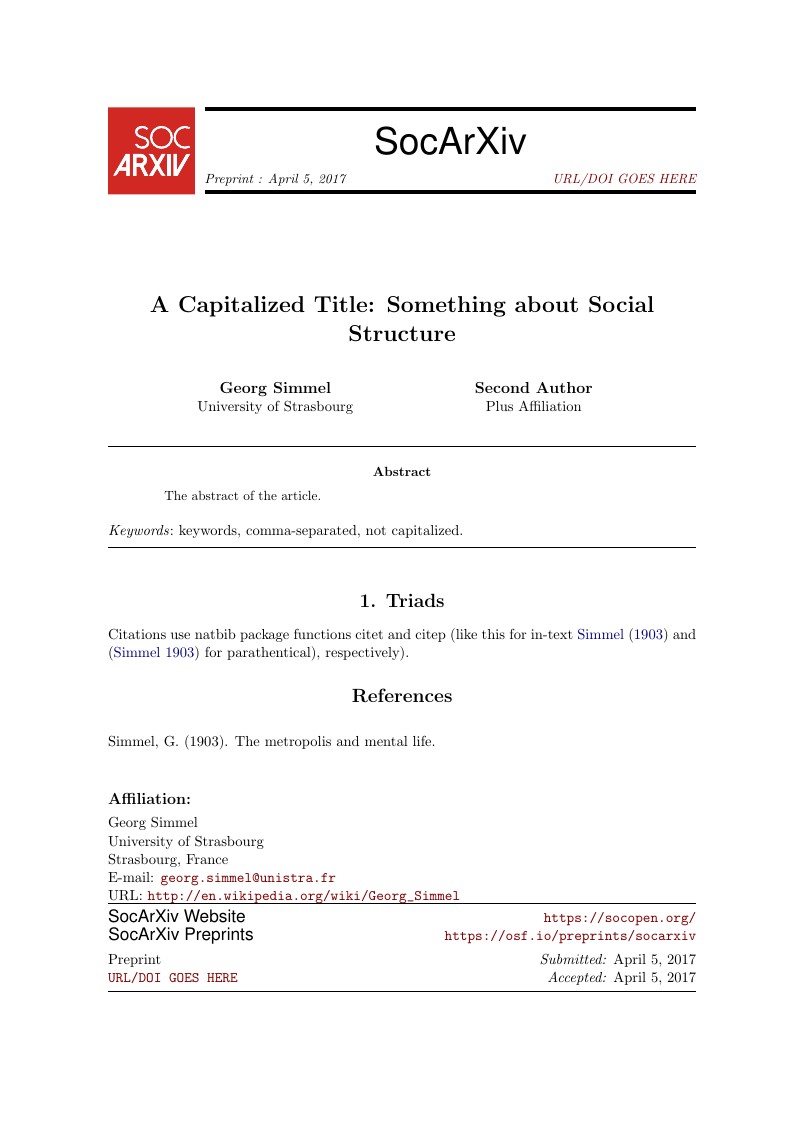
Based on the article latex template of the Journal of Statistical Software by Achim Zeileis. Reformated for SocArXiv by Chris Marcum (cmarcum@uci.edu). Source: https://osf.io/mfvu4/, downloaded on 2017/04/05.
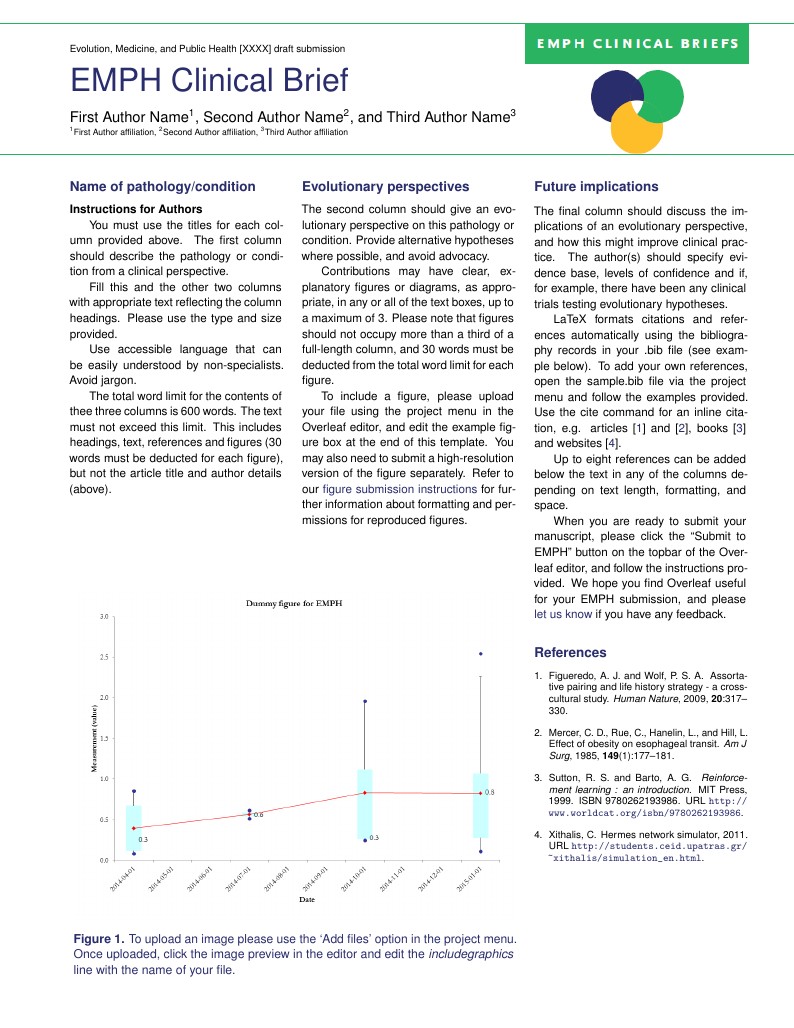
Evolution, Medicine, and Public Health (EMPH) is an open access journal that publishes original, rigorous applications of evolutionary thought to issues in medicine and public health. This template may be used to prepare your submission to EMPH. It contains instructions on how to include text, figures and references, and when you are ready to submit your manuscript please click the Submit to EMPH button on the topbar of the Overleaf editor and follow the instructions provided. We hope you find Overleaf useful for your EMPH submission, and please let us know if you have any feedback. Please note that although it may be possible to fit more than 600 words on the page in the Overleaf template, 600 words is the upper limit for this content type. About EMPH EMPH aims to connect evolutionary biology with the health sciences to produce insights that may reduce suffering and save lives. Because evolutionary biology is a basic science that reaches across many disciplines, this journal is open to contributions on a broad range of topics, including relevant work on non-model organisms and insights that arise from both research and practice. All material to be considered for publication in Evolution, Medicine, and Public Health should be submitted in electronic form via the journal's online submission system. Full instructions for manuscript preparation and submission can be found at http://emph.oxfordjournals.org/ Evolution, Medicine, and Public Health (EMPH) is pioneering a new category of contributions called Clinical Briefs for which we are soliciting further submissions. Briefs are of two types: 1) Clinical—that take an explicitly evolutionary perspective to address a specific condition or pathology and 2) Foundational—that deal with basic topics underpinning an understanding of evolutionary principles that shed light on clinical conditions. This novel type of publication is restricted to a one-page, 600-word summary, including references and figures, designed to be accessible in style and useful for practitioners. Both kinds of briefs use a standard template with three columns: Clinical Briefs use the first to discuss the targeted pathology, the second to discuss an evolutionary perspective on this pathology and the third to discuss future implications. Foundational Briefs use the first column to give a definition and background to the topic discussed, the second to give relevant examples from human biology and public health and the third to give specific examples from clinical medicine. Briefs can be easily downloaded and read from tablets and mobile phones. As with other contributions to EMPH, Briefs are peer-reviewed and searchable online.
\begin
Discover why over 25 million people worldwide trust Overleaf with their work.